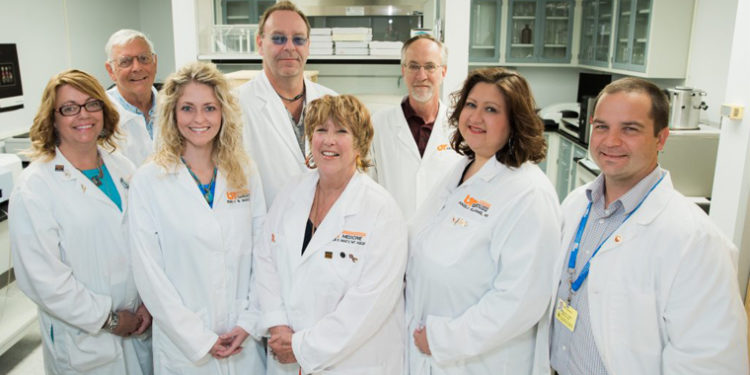
Congratulations to Dr. Wall on receiving this award for his pioneering work in the field of light chain amyloidosis. UTRF has worked extensively with Dr. Wall for a number of years in developing and commercializing his IP portfolio in this space.
Maha Krishnamurthy, UTRF Assistant Vice President of Licensing
Researcher Jonathan Wall, PhD, with The University of Tennessee Health Science Center Receives $1 Million to Study Antibody Therapy for Systemic Amyloid Disease
The amyloidoses are a group of rare diseases that are a consequence of abnormal protein (amyloid) deposits in various body tissues and organs. Characterized as systemic or localized, light chain-associated amyloidosis (AL) is the most common form of systemic amyloid disease, with an estimated 4,500 new cases each year in the United States. Systemic amyloid disease can cause serious damage to virtually any organ of the body, including the kidneys, heart, and lungs.
The University of Tennessee Health Science Center’s Jonathan Wall, PhD, professor in the Graduate School of Medicine and director of the Amyloidosis and Cancer Theranostics Program in Knoxville, has been studying amyloidosis for over 20 years. He recently received a new three-year grant totaling $1,050,000 from the National Institutes of Health to study “Pre-targeting Immunotherapy for Light Chain (AL) Amyloidosis.” For this project, Dr. Wall is working to develop a novel, two-stage immunotherapy that will increase the success of currently available treatments for AL patients and possibly widen the opportunities of using such antibody-based therapies to other forms of systemic amyloid disease. His grant will assess the use of novel bifunctional “peptope,” a combination of a pan-amyloid-reactive peptide and a linear epitope sequence, that targets amyloid deposits for removal.
“By adding this peptope we found that it attracts antibodies to sites of amyloid deposition and signals for amyloid removal to commence,” Dr. Wall said. “We anticipate that this novel, two-stage immunotherapy will enhance the effectiveness of current treatments for AL patients and potentially extend the utility of antibodies to other forms of systemic amyloid disease.”
There is no cure for light chain amyloidosis currently, and the prognosis for patients is poor with a median survival of less than three years. Using technology that Dr. Wall and his team have worked with for years, the goal of this project is to take this new peptope and combine it with antibodies that are already approved for use in industry in the hopes of it moving to clinical trials much faster.
“Even though this project is early in development, we have already started conversations with stakeholders to maximize the success of this project,” Dr. Wall said. “Our lab is absolutely dedicated to the translation of research. We do everything to try and generate novel agents that will hopefully, benefit patients. This approach will complement and extend current antibody-based therapies for amyloid removal, thereby restoring organ function and securing long-term survival and remission for patients with light chain amyloidosis.”
Dr. Wall has been with UTHSC since January 1995, and has received continual funding to study Amyloidosis for almost 10 years. The Knoxville research program has been working on Amyloidosis for over 50 years, developing new diagnostic techniques and drugs for this very rare disease.